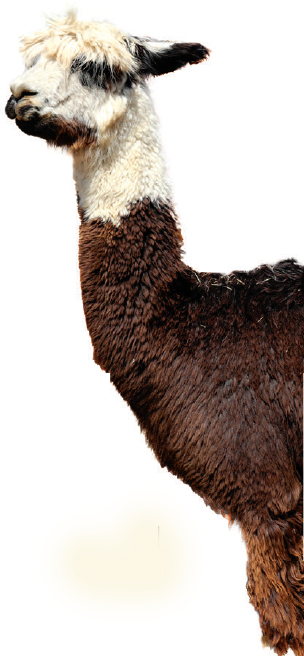Story and photographs by Amber Weaver
How one couple finds and shares peace through their dedication to the alpaca industry
You look out your driver side window as you make your commute home, and a blur catches your eye out in a pasture. As you slow down, you notice a graceful yet unique animal prancing around with its herd. Colors of cream, brown and black drapey locks fill the field as a smile stretches across your face. Immediately you can tell the gentleness, curiosity and joy of the livestock that resembles a llama.
This majestic creature is originally found in South America, but you can also find Suri alpacas right down the gravel road at Long Hollow Suri Alpacas in Gallatin. While the herd has become a booming business for the Heinrich family, their focus has always been on the peace the alpacas grace upon others.
“The alpacas forced us to stop working every night” Karl said. “We would go to our front yard, sit down and watch them eat. Not only was it entertaining, but it was also the relaxation we needed. We soon knew we had to share it with others.”
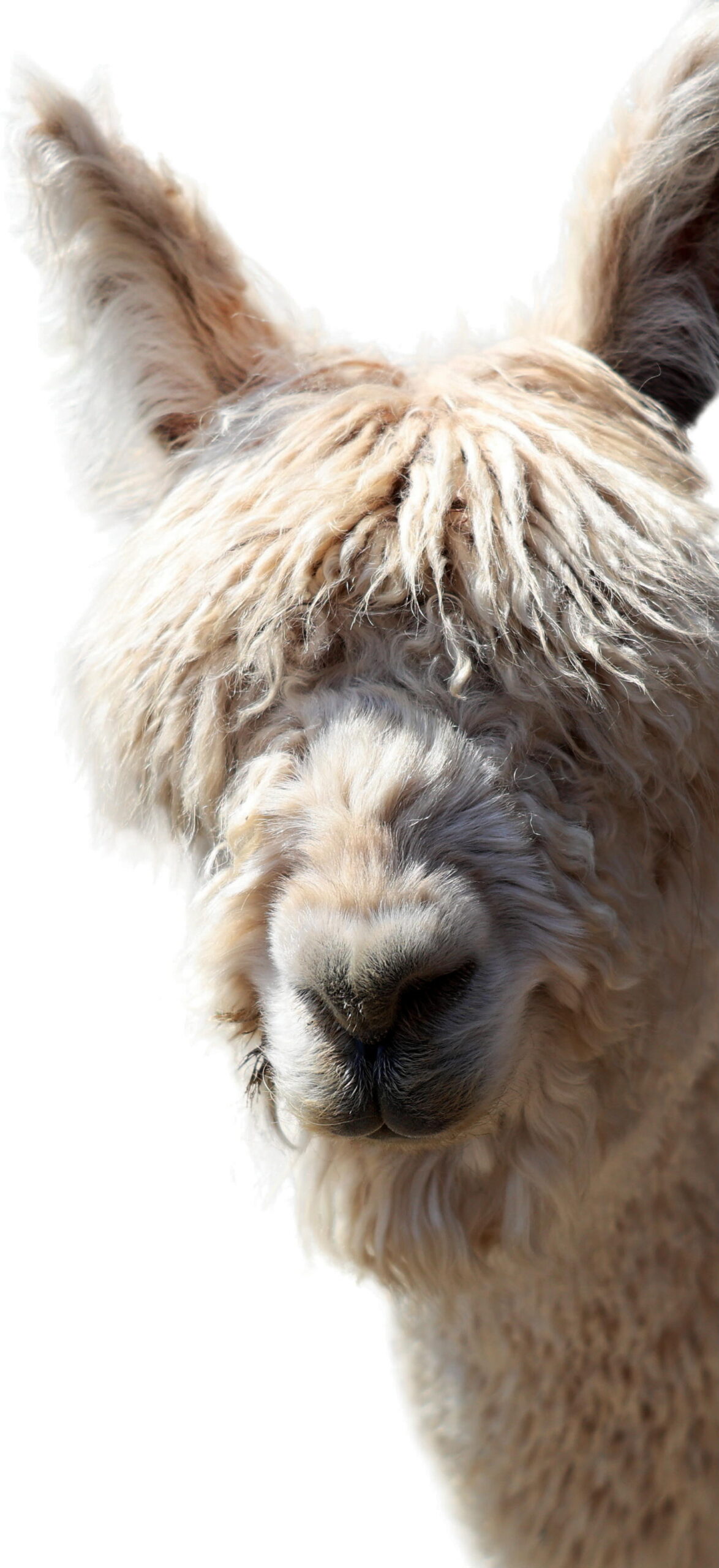
Hooked on alpacas
Karl and Jan Heinrich are the faces behind Long Hollow Suri Alpacas located in the Cumberland Electric Membership Corporation service area. As with many farms, though, it didn’t start out as a success.
The two met in Wisconsin through work and eventually made their way to settle down in the Volunteer State to start their own industrial piping contract business. One night in 2002, the couple was watching television, and it sparked a new dream for them both.
“I saw the alpacas on TV and just knew I had to see them,” Jan said. “Once we saw them in person, we started looking into it as an investment, and it grew from there.”
It wasn’t long before there were four Suri alpacas on the Heinrichs’ 5 acres on Long Hollow Pike. The two had never farmed before, but they were soon hooked.
“We started them in the front yard. Then they ended up in the side yard, the backyard — there were alpacas everywhere!” Karl said. “Those four alpacas grew to 28 in about two years.”
Colorumptous and fibertastic
The breed they decided on accounts for 10% of the world population of alpacas. The alpaca breed you typically see is called Huacaya, and they are woolier like sheep. Suri alpacas are unique due to their drapey locks that resemble dreadlocks. Their fiber is like silk or cashmere and is similar to fabric you would find in high-end men’s fashion. Once shorn, the wool simply reflects light because of the structure of the fiber.
Growing and producing quality
Due to the distinct fiber and endless possibilities these animals held, Karl and Jan had to move to a bigger place. In 2009, the couple moved to the 60-acre farm they now call home on Wallace Road. There they have been able to grow their herd as well as the number of products they produce.
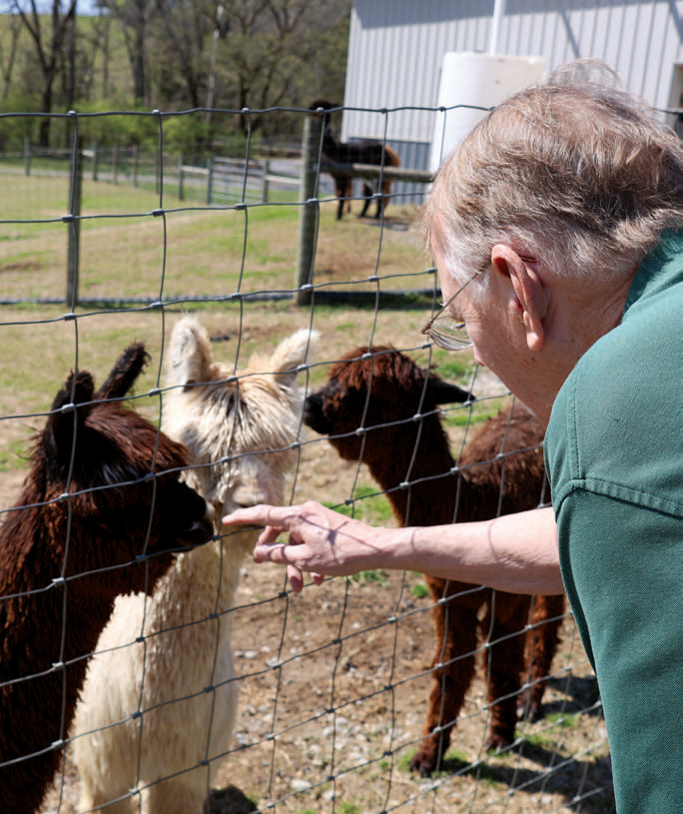

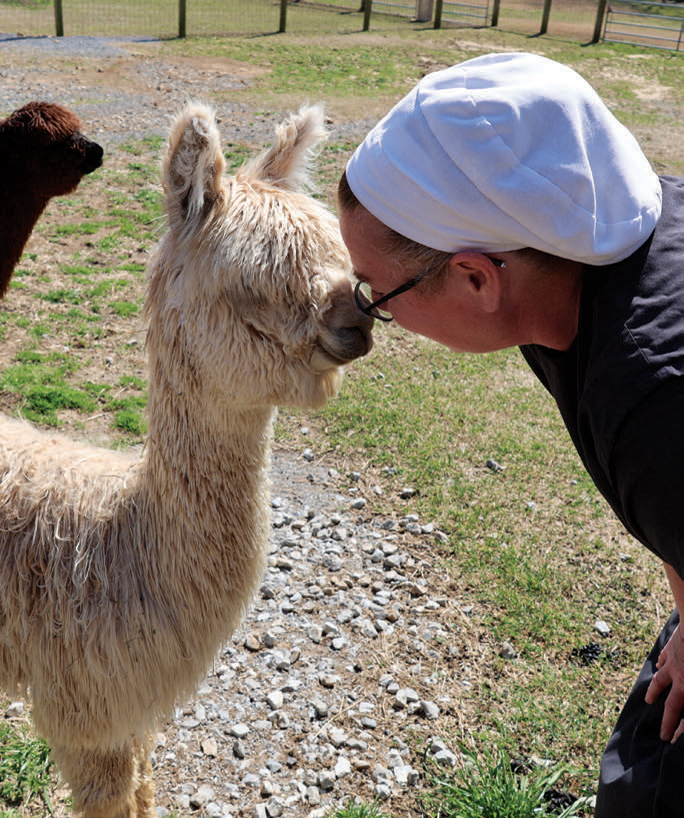
Over time, the operation grew to 150 alpacas, 13 full-time employees, a fiber processing mill and a farm store. The team was buying, breeding and showing alpacas while at the same time producing socks, scarves, yarn, rugs and other clothing.
“Even with how big this all got, it was all about the quality,” Jan said. “The quality of the animals and the products are what’s important to us.”
Stewards of the land
The importance of quality is also found in how the couple takes pride in being stewards of their operation. All they do is an effort to make sure it is what’s best for everyone and everything involved.
“We are always trying to keep in mind the ecology of the animals, the land and the farm,” Karl said. “We are trying to do things that just make sense.”
Some things that “just make sense” include the building where you will find the farm store and fiber processing equipment. It is designed with infloor heating. That heat is supplied by a wood-fired boiler, and all the wood is harvested from the Heinrichs’ land. The farm also has one of the very first solar systems in Sumner County. With the help of their electric cooperative, they were able to install 140 solar panels on the roof that almost completely power the farm.
Aside from energy efficiency, the operation also made the most of its fiber milling. The couple found an alternative to the cut-and-sew method through a whole garment-knitting machine.
“We were making dresses and sweaters without any sewing involved,” Karl said. “It was a very ecological method of producing a garment because all the yarn was being used. There were no scraps this way.”
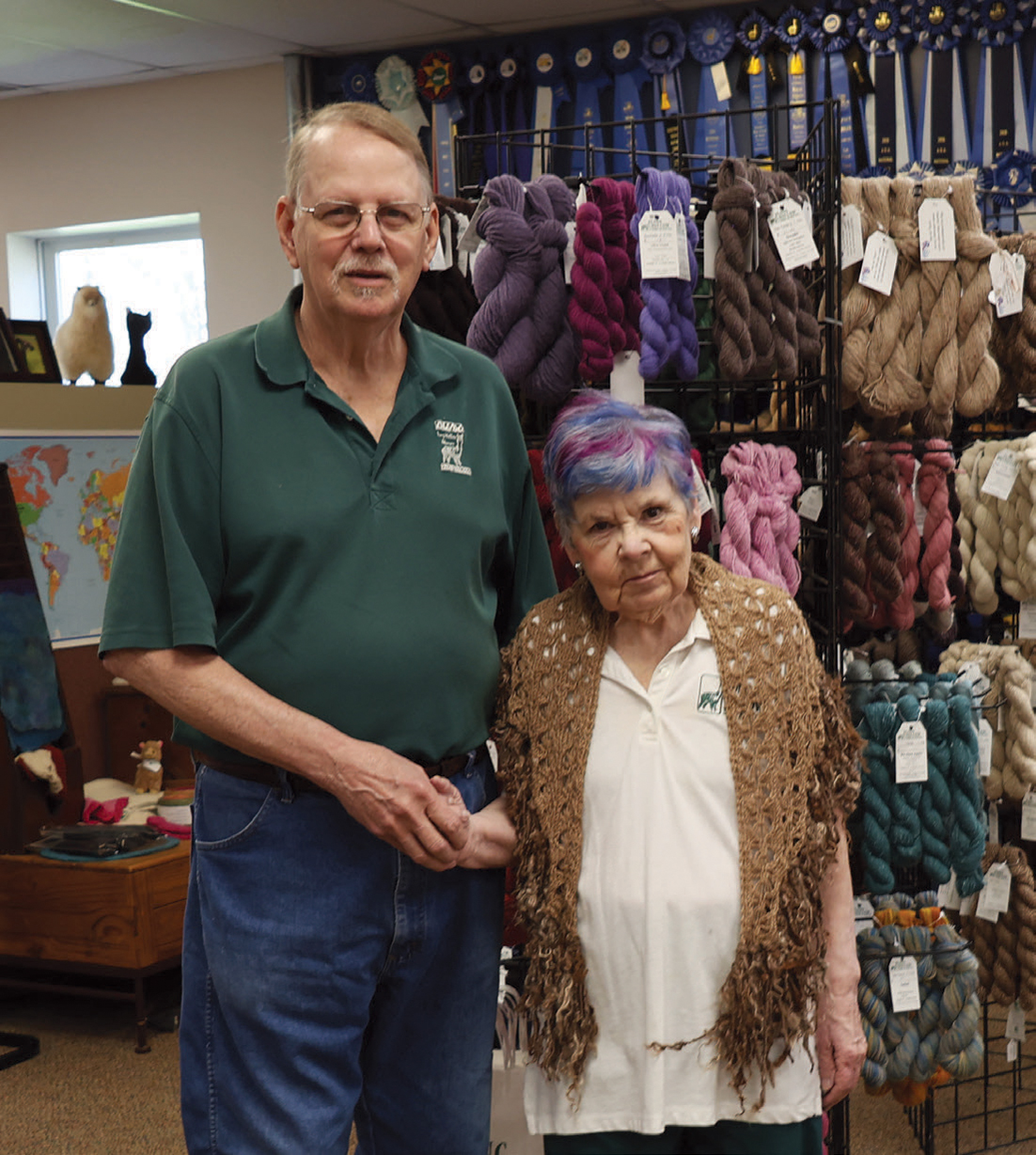
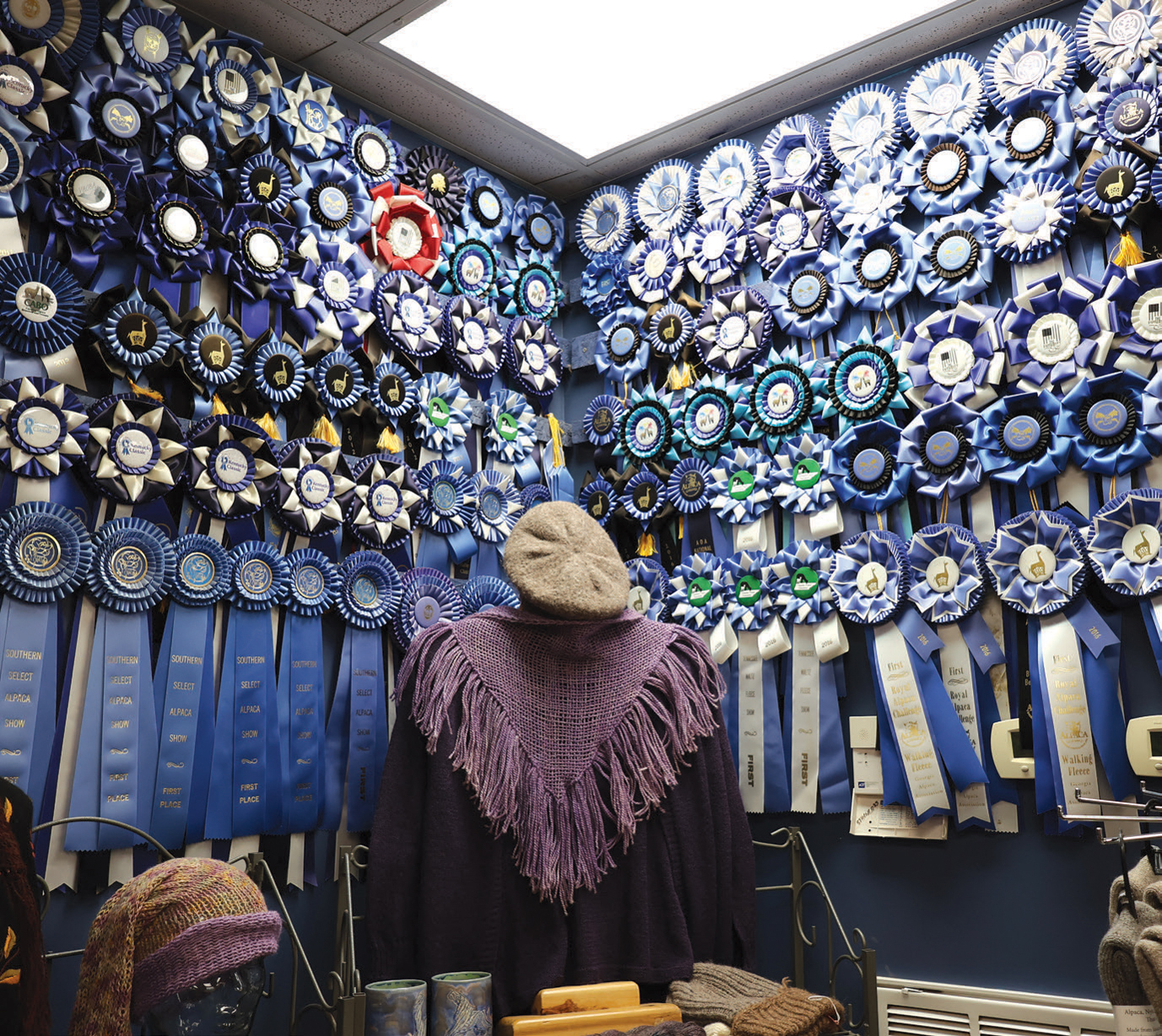
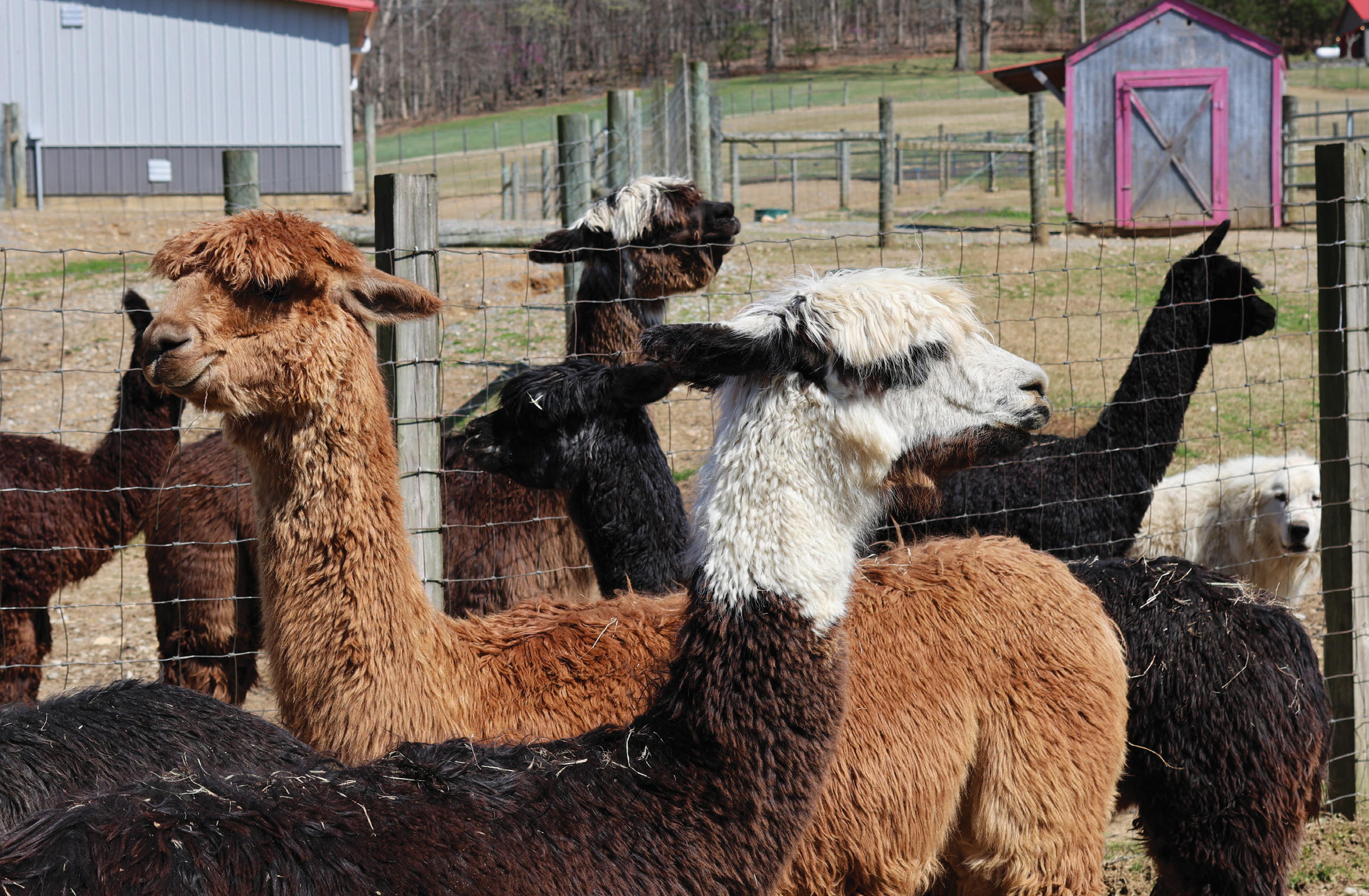
Alpacas are also environmentally friendly animals. On top of fiber products, the farm also sells manure from the animals. Their manure slowly releases nitrogen, meaning you can directly put it on your plants or plant directly into it.
“It will grow the best garden you’ve ever had,” said Shae Jarvis, one of the farm’s employees.
This way of life also leads to better care for the land. Pastures must be vacuumed, and leaves have to be picked up in order to have the prize-winning alpaca and wool.
“Every aspect of this makes you have a bit more concern for the environment,” Karl said.
Paving a path of success
As rare as Suri alpacas are today, they were even more so when the farm began. The Heinrichs were able to pave a path in the industry for not only themselves but for other alpaca breeders, exhibitors and fiber millers. They helped set standards across the industry on how to better breed alpacas through endless research and even helped get them declared as a livestock animal.
The Heinrichs sold their products and shared their findings through livestock shows, where alpacas are judged based off their frame and fleece. The Heinrichs have been leading alpacas into show rings all over the country over the past two decades and have an extraordinary number of accolades to show for it.
An important work
Unfortunately, the resounding success came to a halt during the COVID-19 pandemic. Long Hollow Suri Alpacas was forced to shut down for a short time due to health issues. Unable to keep up the workload, they went from 150 alpacas down to 50 and from 13 employees to three.
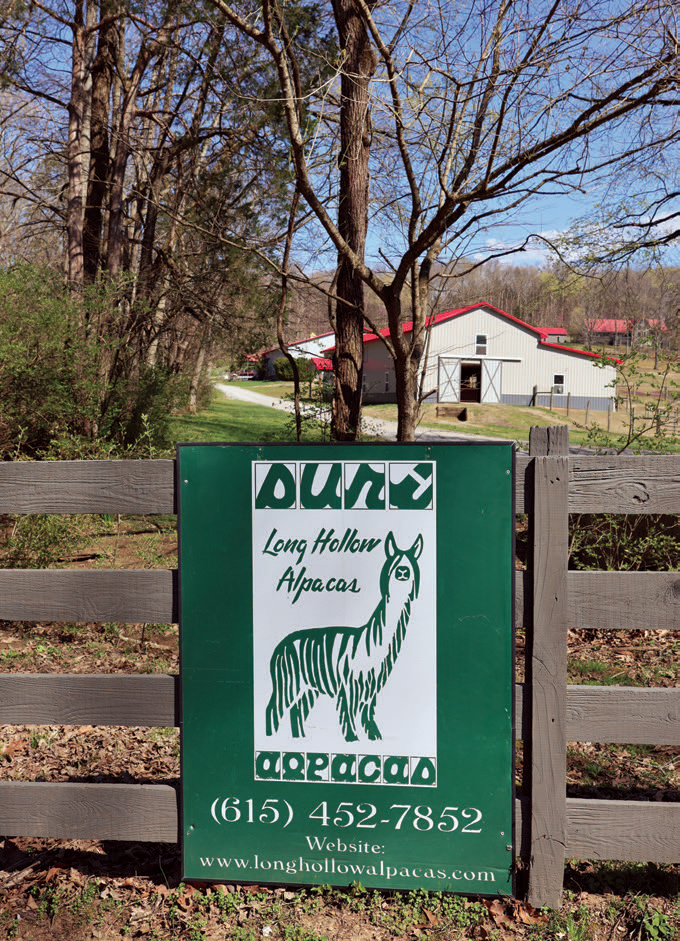
Don’t worry, though; this bump in the road didn’t last for long. It did, however, change the farm’s standpoint. The Heinrichs decided to close their fiber processing mill permanently, but now they host farm tours almost daily. Some groups are exactly what comes to your mind: people interested in learning more about agriculture and this unique operation. Others are a bit more special like visitors from nursing homes, the Women’s Veterans Healthcare Center in Nashville or special education groups.
“It’s rewarding when we have the special education groups come in,” Jarvis said. “In a moment, you can really realize what an animal can do for a child. Suddenly, a quiet child brightens up and moves to being inquisitive. Maybe they’re not verbal, but you can tell they want to touch the alpaca and learn more. I think it’s such an important work that we do.”
Sharing a simple joy
As you now know, what was once a plan for an early start to retirement is now so much more. Karl and Jan found a simple joy that allowed them and now so many others an escape from everyday life.
“Suri alpacas have always stopped us in our tracks and made us think about something relaxing,” Karl said. “Now we are able to show people a way of life that isn’t the glamour of downtown lights, but it does help people feel better.”
“Suri alpacas have always stopped us in our tracks and made us think about something relaxing. Now we are able to show people a way of life that isn’t the glamour of downtown lights, but it does help people feel better.”
